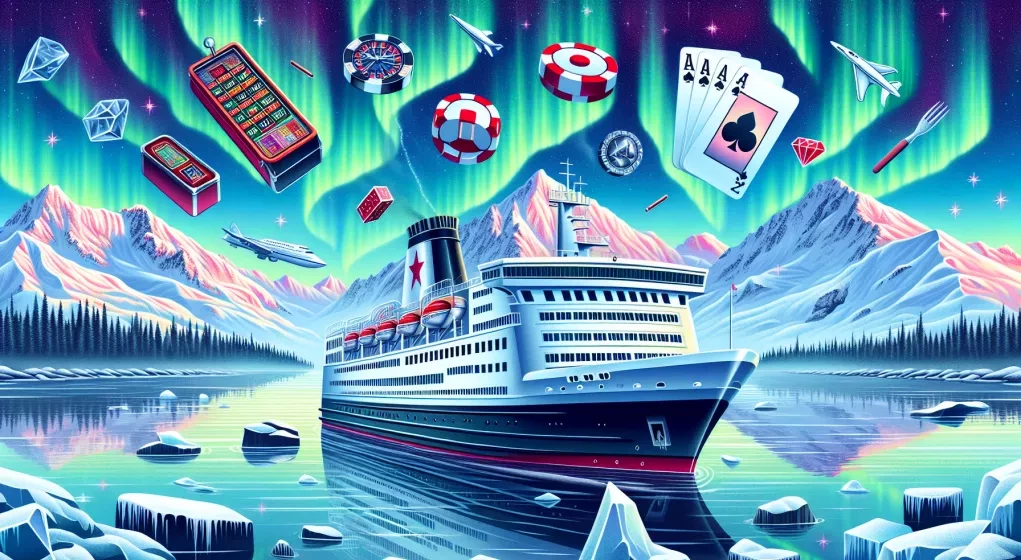“`
Upon the roiling waters of Alaska’s cragged shores, a legislative tempest swirls anew in the Juneau capital. The Alaska Marine Highway System (AMHS), a maritime network vital to the rugged state, is the center of a controversial proposal to inject a wave of monetization reminiscent of Sin City. Picture a serene journey aboard an AMHS ferry, gulls caw overhead, vistas of the wild frontier expand without end, and nestled within this tableau, Las Vegas-style slot machines clang and flash, enticing adventurers to chance their luck.
This vision finds its champion in Alaska Rep. Jesse Sumner (R-Wasilla), who, undeterred by the prior stalling of House Bill 197 in the House Transportation Committee, has hoisted its sails again for consideration in 2024. Sumner’s reintroduction of HB197 signifies not merely a bid to amend maritime leisure, but a strategic move to buoy the state’s coffers with taxes gleaned from these nautical casinos.
“The introduction of electronic gaming on AMHS ferries has the potential to generate additional revenue through fees, taxes, and a percentage of gaming income, similar to land-based casinos, contributing to the funding of maritime services,” declared Sumner, eyes set firmly on a horizon of economic revitalization. He advocates that these slot machines might not only seduce new tourists with their siren song but also stimulate regional economic growth through the recirculation of gaming-related profits.
Yet, this notion is not without its sea monsters of contention. Skeptics of the fiscal projections challenge the bill’s practicality, noting a loophole; the machines would only enliven a handful of voyages, given the stipulation that they may only come to life three nautical miles from shore—a mark most ships rarely cross.
Proponents, countering, suggest an elegant solution lies in a mere rerouting of these vessels to ensure they chart the requisite distance from land, thereby opening the gates to a gambling utopia upon the waves.
Craig Tornga, the marine director for the AMHS, has weighed in as well, casting doubt on the practical feasibility of such an endeavor. Current vessels may not be equal to the thirst for power these slot machines demand, especially given the age of the fleet.
Adding yet another layer to the complex debate is the weight of the state’s existing gaming law. Within its text, casino gambling stands as prohibited, except, crucially, it grants an exemption beyond the margin of three nautical miles from Alaska’s coastline.
As the AMHS stretches 3,500 miles to connect approximately 35 isolated coastal communities, the potential benefit of this new revenue must be carefully balanced against the preservation of an essential public service. Moreover, with transportation rates already high, officials hike with caution. A simple voyage from Juneau to Sitka carries a hefty price tag, and the question lingers whether the gilded allure of slot machines is worth the gamble for Alaska’s marine lifeline.
“`






